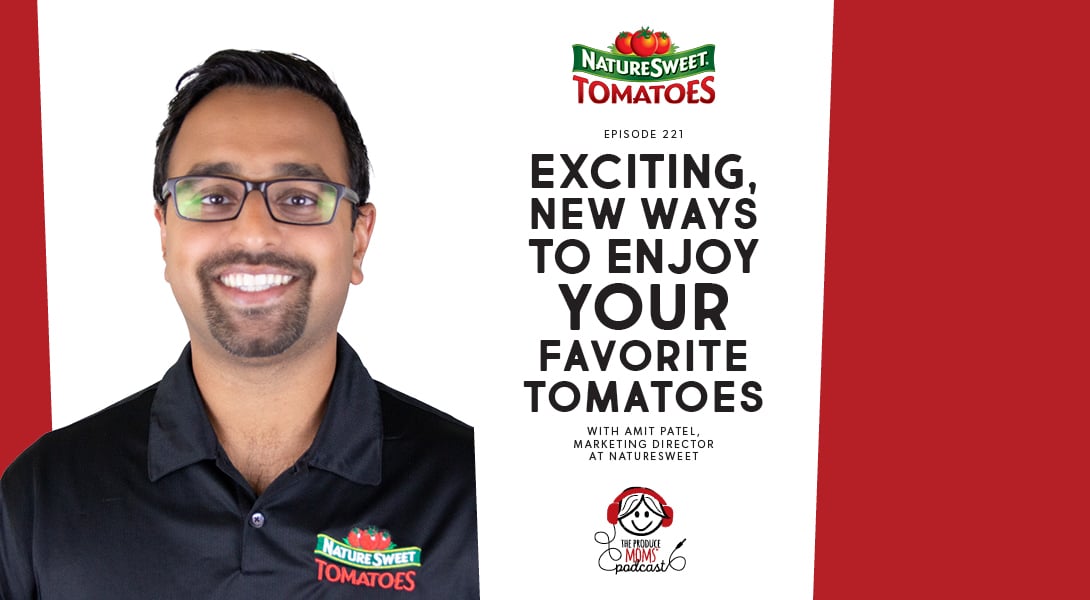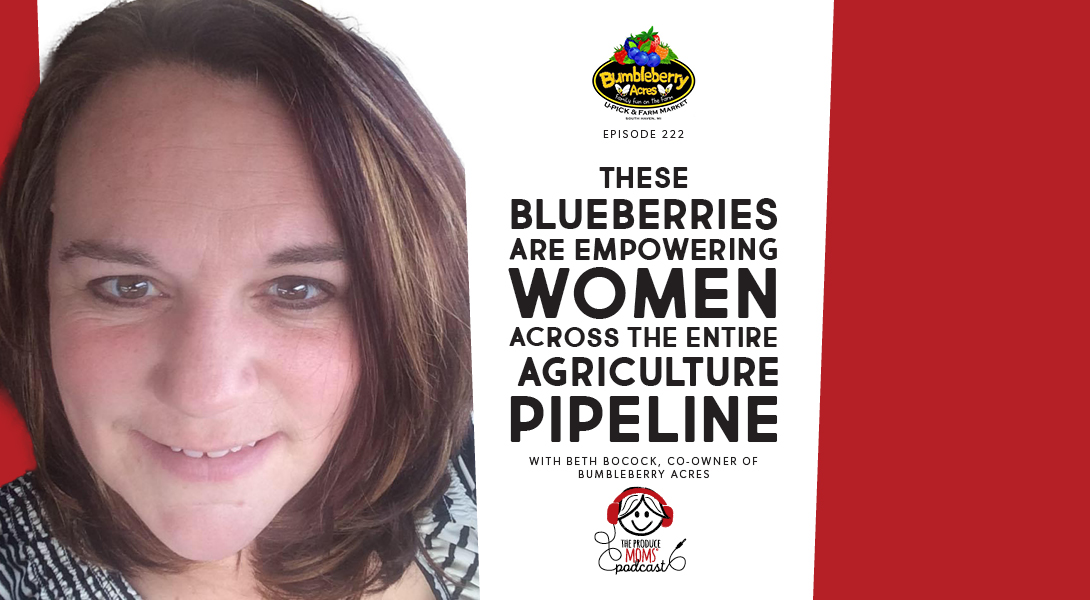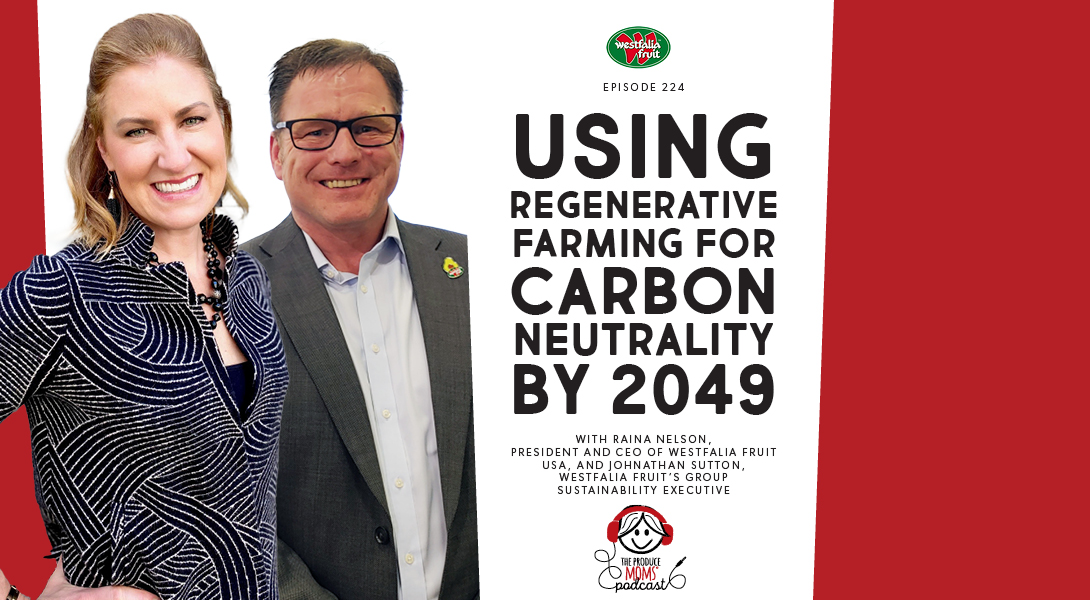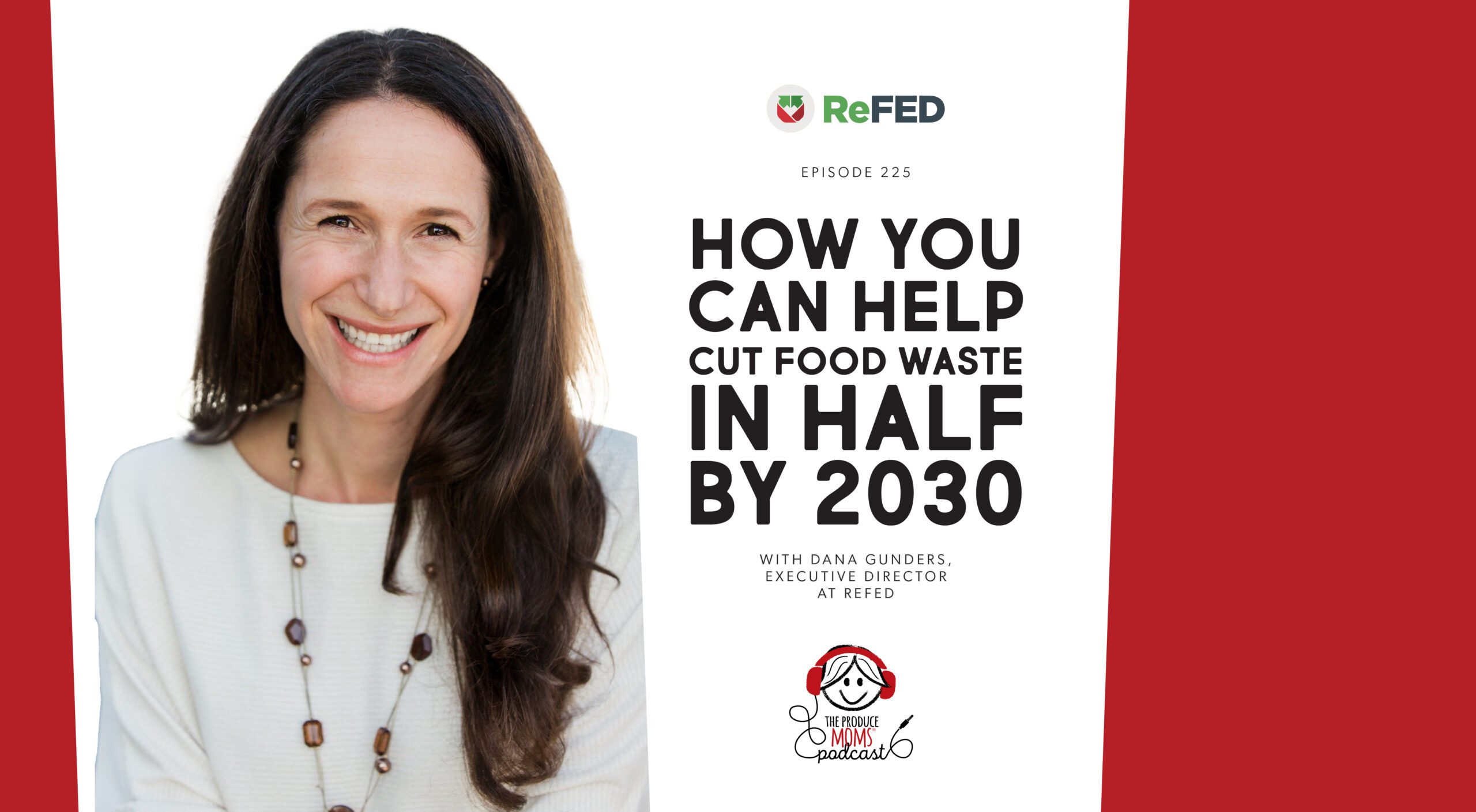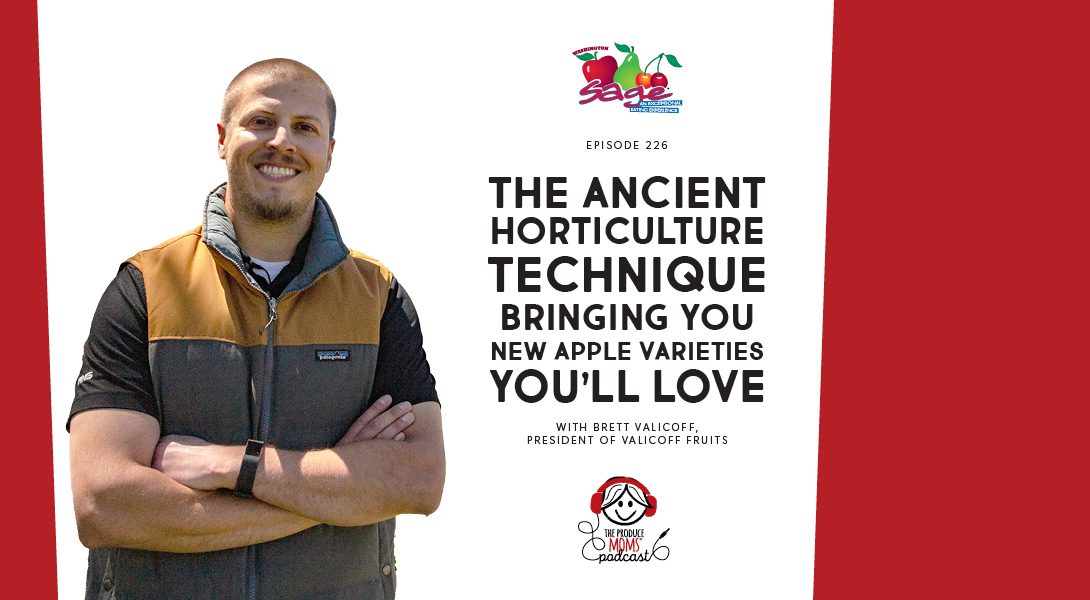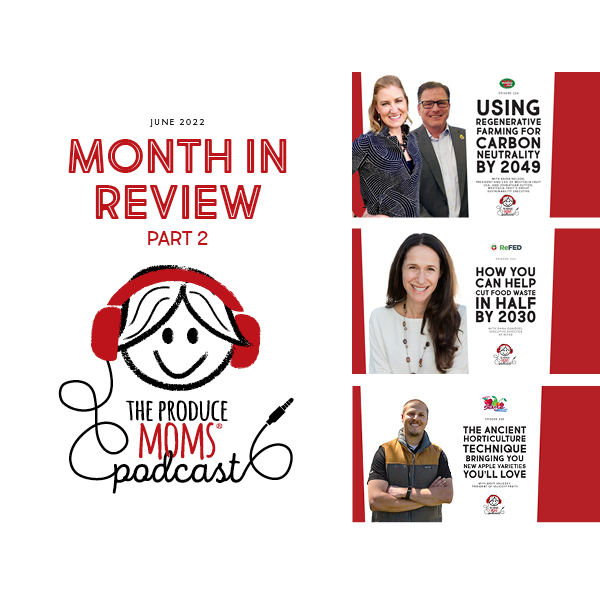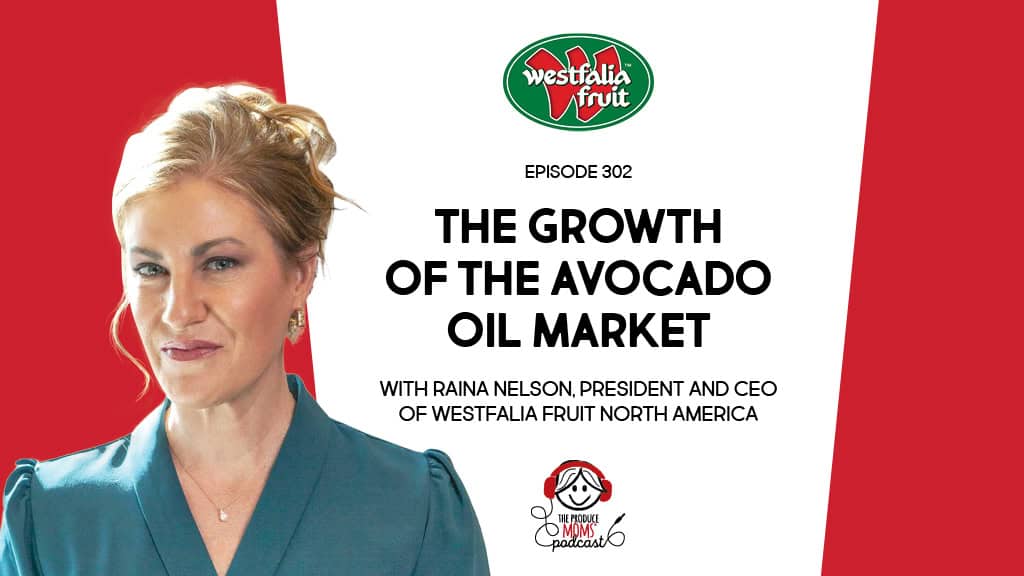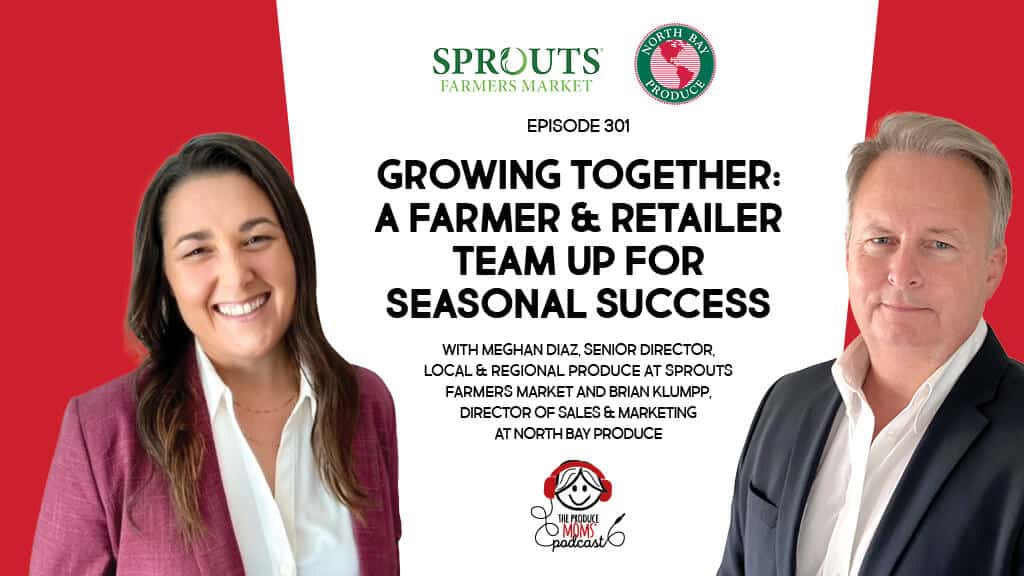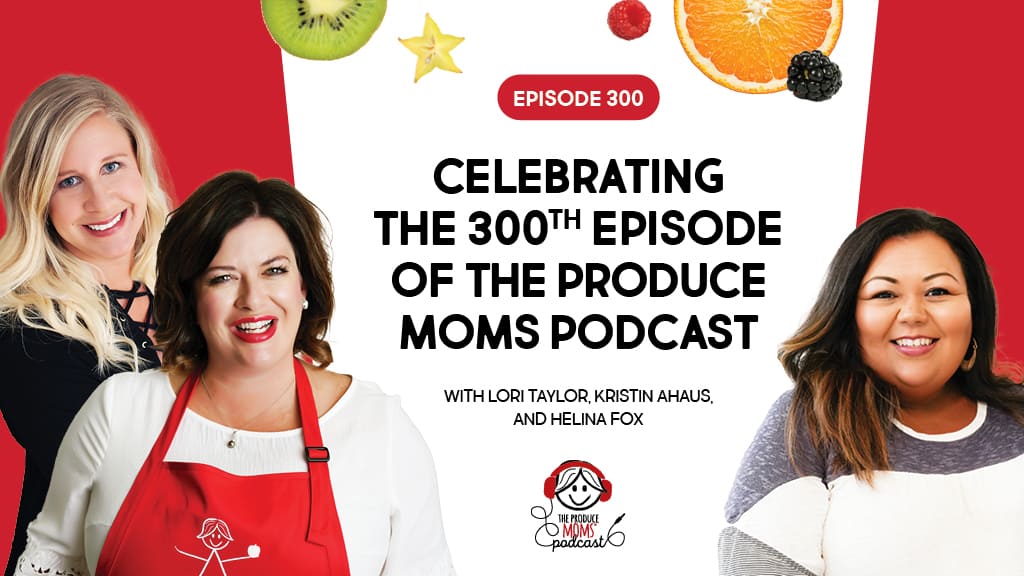June 2022: Month in Review
Jul 12, 2022
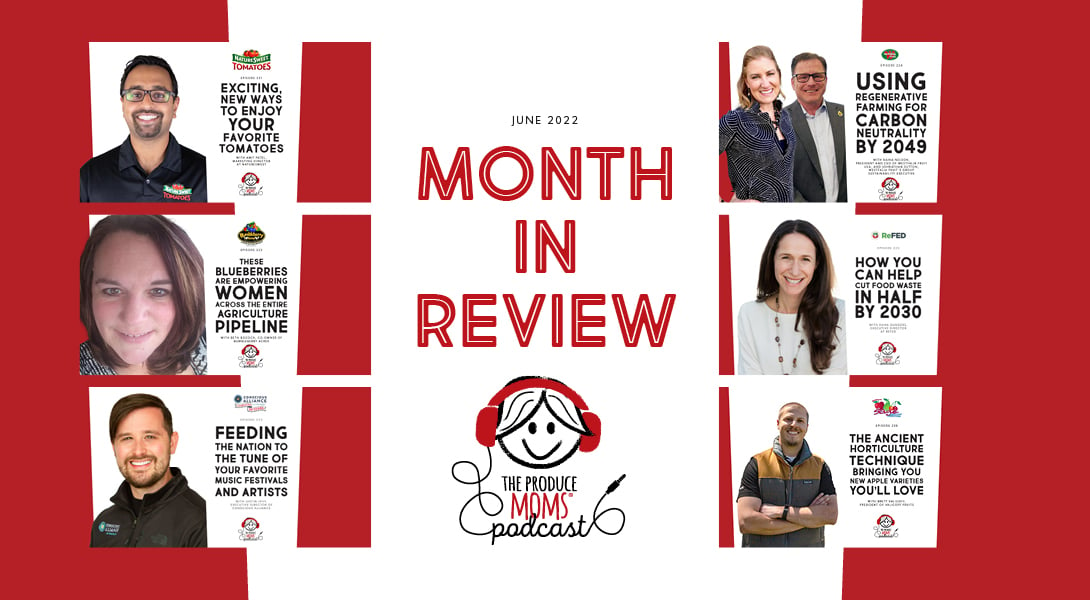
This post may contain affiliate links. Please read our disclosure policy.
Love the Podcast? Please rate and review!
If there’s ever been a time for impact, it’s now! June 2022 was one for the books, with incredible guests from many companies you already know and love who are eradicating food waste, carbon emissions, supply chain ambiguity, food insecurity, harmful farming practices, and more. It’s not just these companies that are making a difference – they each share unique ways you can create the same ripple effect in your home.
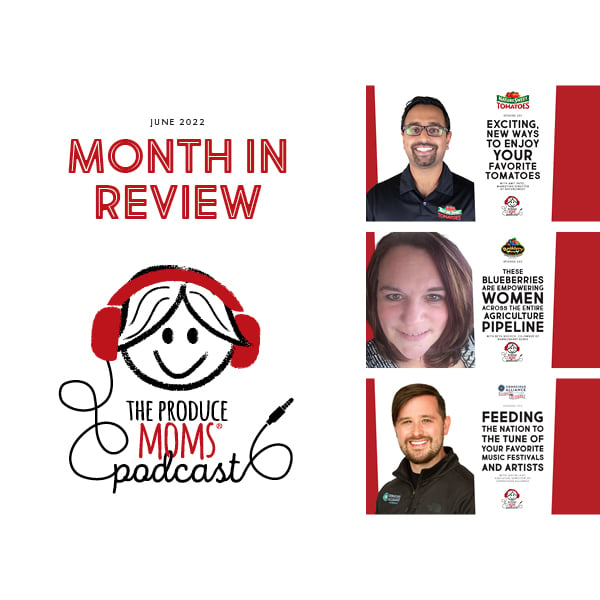
Beth Bocock, co-owner of Bumbleberry Acres, is also making a huge difference by teaching visitors to their farm, a bustling agritourism destination, where their food comes from and how they’re helping the planet. Not only that, but the farm hires also three “Bumbleberry Girls” a year who learn the entire ins and outs of the farm. Empowered with education and a powerful farming experience, each girl is fostered to move on into leadership positions.
Justin Levy, Executive Director of Conscious Alliance, has created a unique opportunity for artists, musicians, food makers and music lovers to come together and end hunger in underserved communities nationwide. What once was a budding non-profit in 2004 is now a massive impact-maker that’s used food drives at concerts to serve isolated communities who don’t have access to quality food. Plus, Conscious Alliance helps brands like Applegate, Conagra, Hormel and more decrease food waste.
Raina Nelson, President and CEO of Westfalia Fruit USA, and Johnathan Sutton, Westfalia Fruit’s Group Sustainability Executive are on a mission to be free of carbon emissions by 2049. Not only that, Westfalia is leaning back on indigenous wisdom to use farming practices that are healthy for the soil, integrate animals back to the farming land, get rid of harmful chemicals, and more. They’re even working with other companies to use the skins and stones (pits) of their famous avocados to replace microplastics in cosmetics!
Dana Gunders, Executive Director at ReFED, shows us that we can’t just sit back and watch companies put in all the work to make change happen, we have to start within our home. No one “wakes up wanting to waste food”, but if you don’t have any information on how to change this, what are you supposed to do? ReFED is leading the way with data-driven solutions to fight food waste across the entire food system, with the goal of cutting food loss and waste in half by 2030.
Brett Valicoff of Valicoff Fruits shares an ancient farming technique they use to bring new and exciting apple varieties to life. The company has diversified with many other produce items, like nectarines, pears, apricots and peaches, and even operates their own storing and packing facility. When it comes to apples, they use an ancient horticulture technique called tree grafting that combines the plant tissue of two apple varieties and, after nature takes its course, brings us new and exciting apple flavors to try!
Keep reading to discover the incredible work each of The Produce Moms’ guests are doing to eradicate food waste, carbon emissions, food insecurity, harmful farming practices, and more!
june 2022 Podcast Episode 221
The delicious, high-quality tomatoes you love from NatureSweet are helping transform the lives of agriculture workers with Amit Patel, Marketing Director at NatureSweet
We all know and love the delicious tomatoes NatureSweet brings us. Their packaging is just as delightful and recognizable, and if you’ve been purchasing NatureSweet tomatoes, you’ve probably been brand loyal for years. That loyalty doesn’t go unnoticed, and you can be confident in the brand you’ve been investing in because NatureSweet is transforming the lives of their agricultural workers by being a part of the Equitable Food Initiative. As an EFI certified company, you can be sure NatureSweet is adhering to the best practices in food safety, treating their farm workers fairly, and creating solutions to make the supply chain sustainable.
Plus, they’re helping you get closer and more connected to their farmworkers, too! You can now see a spotlight of one of their agricultural worker’s full stories under the seal on any NatureSweet tomato package. Farm workers deserve to get recognized for their incredible work and NatureSweet knows how much consumers like you want to be connected to the produce they’re purchasing. Listen to the interesting and incredible work NatureSweet is doing by clicking the link below.
JUNE 2022 Podcast Episode 222
The blueberry farm empowering women to become future leaders with Beth Bocock, co-owner of Bumbleberry Acres
Have you ever driven by a “for sale” sign outside a piece of land and thought about owning it some day? That’s exactly how Beth Bocock and her husband took over Bumbleberry Acres, a farm that’s been around since 1957 and has turned into a wonderful, family-friendly destination. From a petting zoo to a corn maze and wagon ride, to a Blueberry Festival with endless blueberry pies, Bumbleberry has plenty of attractions that visitors enjoy. Not only that, but visitors also learn along the way how the farm is helping take care of the planet and understand where their food truly comes from.
Visitors are always greeted by the Bumbleberry Girls, young girls the Bocock’s hire and train specifically to treat visitors like family. The girls know all the ins and outs to running the farm – from the dirt and its nutrients, to how the berries are grown and more. This helps the girls create a learning experience for everyone that comes, but also empowers them to step into leadership positions when they look toward their future. Of the 36 Bumbleberry girls that’ve been hired, all of them have gone into leadership positions in or outside of farming!
june 2022 Podcast Episode 223
Attending one of these concerts can help feed thousands with Justin Levy, Executive Director of Conscious Alliance
Jack Johnson, The String Cheese Incident, Umphrey’s McGee, The Dead and more are all making an impact helping feed underserved communities and eliminate food waste around the United States. Conscious Alliance is a movement connecting concert goers with bands they love and giving them the opportunity to donate food in exchange for an unforgettable experience. Conscious Alliance has generated deep results like opening a food pantry and feeding schools on the Pine Ridge Reservation where 40,000 Oglala Lakota Native Americans live and serving 2.6 million meals to those in need during COVID-19.
Justin Levy, Executive Director of Conscious Alliance connected with the founders in 2004 at a String Cheese Incident Concert when he was inspired to help drive this mission further. Since then, they’ve hosted 119 concerts and mass food drives, and even connected with brands like Justin’s Peanut Butter, Applegate, Conagra and Hormel to donate food and eliminate unnecessary food waste.
June 2022 Podcast Episode 224
Taking a stand against climate change and pollution by becoming carbon neutral with Raina Nelson, President and CEO of Westfalia Fruit USA, and Johnathan Sutton, Westfalia Fruit’s Group Sustainability Executive
Regenerative farming… carbon neutrality… sustainability… What does it all even mean? For Westfalia Fruit, it means changing their farming practices based on indigenous wisdom to grow food in harmony and eliminate carbon emissions. Any company using regenerative farming aims to eliminate the use of harmful chemicals, use the natural resources already available to them, and integrate animals back into their agricultural land.
Westfalia is also working to use as little water as possible, since we’ve seen the damage that’s been done to one of our life-dependent, finite resources. And speaking of being resourceful, Westfalia has partnered with several companies to use the skins and stones of their avocados to replace microplastics in cosmetics! If only all companies could be as resourceful as Westfalia, we could see a huge impact like their target of being carbon neutral by 2049.
June 2022 Podcast Episode 225
Cutting food waste in half by 2030 starts in your kitchen at home with Dana Gunders, Executive Director at ReFED
The statistics are jaw-dropping when it comes to food waste around the world. Even more shocking are the changes that could be implemented now to cut food waste in half globally by 2030. Thanks to the data collected by ReFED, companies and food supply chain stakeholders are able to understand how to achieve that goal. Many companies want to truly make an impact like this, but need help in understanding how, which is where ReFED comes in. They’re even working hard to get federal agencies to create campaigns that’ll reach consumers and help us understand what changes we can make in our homes.
ReFED’s Executive Director Dana Gunders has even written a book called The Waste Free Kitchen Handbook (which you can hear about on Episode 79) that will show you how to use different strategies and recipes to decrease waste in your kitchen. For example, you’ll learn how to use overripe berries or avocados that are brown in delicious, craveable recipes, decreasing your food waste and increasing the healthy treats you serve at home!
July 2022 Podcast Episode 226
There’s a treasure chest of apple varieties that are a must-try this year with Brett Valicoff, President of Valicoff Fruits
Have you ever gone to the store or farmer’s market and wondered where all of these new, unique apple varieties come from, and how they’re made? It has nothing to do with genetic modification or engineering and actually, these modern apples are made using a very primitive process called tree grafting. The plant tissue of one of the apple varieties’ is added to the other in something called a “scion”, a part of the stem that has buds. The process requires as little human touch as possible!
Interestingly enough, when farmers use this technique, they’ll receive 50 or 60 different looking and tasting apples from the same combination! Then, it’s up to the farmers to decide what consumers like you will want to try next. Valicoff Fruits is an incredible company using farming practices healthy for the land and our environment. Plus, they farm many different, delicious produce items aside from apples, like pears, apricots, peaches and cherries.

